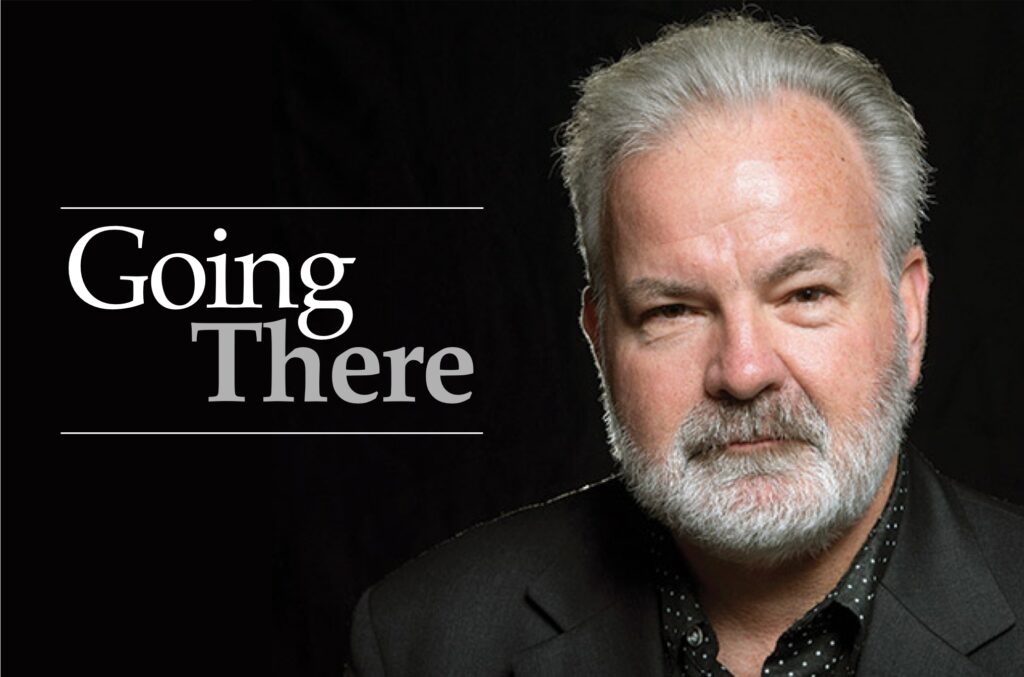Readers comments 1-27-17
Special water meeting
Dear Editor:
I am unable to attend the special meeting on January 31 to discuss the status of the city’s eminent domain case, but I would like to reiterate some of the arguments I made in a letter to the COURIER editor in mid-October 2014 against pursuing this case.
From the very beginning, this case was fraught with uncertainties and risks. It was never clear—and still isn’t—as to whether the city would be able to manage the water system better or more cheaply than GWS. It was never clear what the ultimate cost of acquiring the system would be, and it was never clear at what interest rate the city would end up borrowing money to fund the acquisition. No one could convincingly argue that the whole thing made financial sense. It is even more difficult today to make that argument.
From a broader perspective, I argued that attempting to exercise eminent domain—forcing a private company to sell itself for an arbitrary price to a local government—was a serious matter, and therefore should be limited to those situations where the benefit to the public is clear and compelling. There has never been a clear and compelling case in favor of pursuing the eminent domain case. It was a mistake then and it would be a mistake today to attempt an appeal of the court’s decision.
As we now know, the costs of attempting this takeover have proved to be significantly higher than anyone anticipated: at the very least $6.1 million that the city has so far spent, plus as much as $7.5 million the city will have to pay to GWS’s litigation costs. If the city decides to proceed, then we will certainly add more millions to the city’s eventual purchase price, at the risk of incurring an even greater reimbursement to GWS should the repeal effort fail.
Given the costs we now know, plus the increasing likelihood that borrowing costs will be higher in the future, it is even more doubtful today that a takeover of the water system makes financial sense. It might not make financial sense, and it might not even make common sense.
I don’t accuse the city of misrepresenting the costs and benefits of this proposed acquisition, but I do believe the majority of Claremont residents were under the impression that the city could manage the water system better than GWS and that, over time, this would accrue to the financial benefit of everyone.
In the end, it was a decision driven by hope and greed that has crashed on the rocks of reality. If anyone is to blame it is those who voted in favor of the bond measure who operated under the mistaken assumption that our city government would be able to manage a complex litigation and a complex business better than a for-profit company.
If there is anything we citizens should have learned over the past few decades, it is that governments are rarely more suited to managing complex enterprises than the for-profit sector.
Our city government should stick to its knitting, which is best kept simple and limited.
Scott Grannis
Claremont
We need better leadership
Dear Editor:
The mayor’s recent viewpoint addressing Claremont’s water future illustrates the leadership void on our city council. He tries to legitimize the council’s pursuit of acquiring the water system as implementing the will of the people.
Democracy is not about the people making decisions for their government. Rather, it’s about electing qualified leaders who can guide us in the proper direction, even when we disagree with them. Citing just one example from the mid-1960s, would the Civil Rights Act have been passed if it was left to a popular vote? Clearly, the law serves its intended purpose even today, but it was very controversial when it was enacted. Good teachers and athletic coaches push their students or players to achieve what they believe is beyond their capabilities and desires. Good leaders don’t just blindly perform requested tasks; rather, they add value by promoting a vision of a better future, especially when we fail to see it for ourselves.
Judge Fruin’s decision in the eminent domain proceeding was not a temporary setback—it was a wake-up call pointing out the numerous weaknesses in our request. Given that result, I would have expected the mayor’s column to present information indicating why the decision should be overturned. Instead, it merely reiterated rhetoric such as “local control.”
Just what is local control anyway? Doesn’t the city actually just intend to transfer the control of our water system from one third party (Golden State Water) to another third party (city of LaVerne)? Our city does not have the time or the expertise to run a water system, so why does it believe it could effectively manage a third party operator?
The city manager testified at trial that the city did not intend to build new facilities recommended by its own consultant, nor did it intend to change the operations of the water system. So what added value can the city contribute in the highly unlikely event that the decision is ultimately reversed?
Claremont has already wasted $14 million ($6.3 million of our own expenses and another $7.54 million to reimburse Golden State Water) of the city’s limited funds on this misguided venture. Why would it even consider spending additional funds on an appeal, without a solid basis for expecting a different result? Perhaps, the city will enlighten us at the January 31 special meeting.
In March, we have the opportunity to elect leaders who can guide us to a better future, replacing two of the five incumbents whose primary interest seems to be pandering to public opinion in hopes of being re-elected. Let’s demand better leadership from our local government for the benefit of both current and future generations of Claremont residents!
Dan Dell’Osa
Claremont
A better way forward
On Tuesday evening, the Claremont City Council will hold a special session to discuss its options on how to proceed following the Superior Court’s dismissal of our eminent domain lawsuit against Golden State Water.
Regrettably, it seems that the only option on the table is an appeal of the decision. Filing an appeal in this case will be like going over Niagara Falls in a barrel: there will be no turning back, the end result is completely predictable, and the landing is going to be extremely unpleasant. There is a better way, if the council can be persuaded to get serious about fixing the situation we are in.
First, they must stop pretending that this takeover attempt has been anything but a disaster. The lawsuit has already cost us $6.2 million for our own legal fees, and what is left in our reserves will be just enough to cover the $7.5 million that we owe Golden State to reimburse its litigation costs.
Second, the council can immediately make our financial situation better by negotiating a settlement of the lawsuit with Golden State. The company may be willing to make a substantial concession on its reimbursement claim if we forego our right to an appeal that we have no chance of winning anyway.
Third, the council must understand that there is no need for Claremont to file an appeal. We can accomplish the same objective– a fresh start after a badly fouled-up takeover attempt—simply by waiting to see what happens in the city of Ojai’s eminent domain lawsuit against Golden State. Most importantly, we won’t risk running up our reimbursement debt to Golden State by several million more dollars if we lose the appeal.
Ojai has always had a much stronger case than Claremont. If they lose in court, we will know for sure that we could never have won. But if Ojai is successful – which is to say that if they prevail in the right-to-take challenge, have that decision hold up on appeal, get a favorable result at a valuation trial, and actually lower the cost of water to residents without sacrificing quality—then it might make sense for Claremont to revisit our own situation. And if we decide to try again, we will not be burdened by all of the mistakes which doomed our first attempt.
Finally, if the council wants to take some really constructive action right now, they can stop listening to the high-priced lawyers who forgot to advise us that we could end up paying $14 million just to find out that the city didn’t have the legal right to take over the water system.
These same lawyers supervised the preparation of a seriously flawed feasibility study, insisted on keeping it secret, and ignored repeated warnings that its conclusions were off by more than $100 million. And despite spending almost $5 million in pretrial preparation, they failed to discover the La Verne water agency’s troublesome history of lead contamination, which turned out to be one of the critical factors in the court’s decision. They are no longer worthy of our trust or our money.
This takeover effort has proven to be a costly lesson for Claremont, but if our council will take the necessary steps to cut our losses and start rebuilding our reserves, it is one that we may be lucky enough to survive. On the other hand, should the council decide to pursue a costly and unnecessary appeal, we may all find out the hard way what it means to risk more money than we can afford to lose.
Jim Belna
Claremont
Please explain
Dear Editor:
Would anyone be kind enough to explain to me how supporting sanctuary for all illegal aliens differs from supporting a completely open immigration policy?
Laurence Graham
Claremont
Kudos to the chief
Dear Editor,
This week I sent an email to our new Chief of Police, Shelly Vander Veen, about the excessive rate of speed I sometimes observe in patrolling officers. In my email, I wrote, “I understand if officers are going fast to catch a criminal, but I see cars all of the time speeding up to make the light and other poor examples.”
I was pleased to receive a direct and prompt reply from the Chief that described what action she took. This included her communicating my observation and asking all of the supervisors to discuss and review safe driving habits with the patrol officers. She also explained that the officer I observed had already reviewed our interaction with their commander as it was recorded by policy.
I am pleased about the proactive and thorough process our police department has and it put my mind at ease that the public can safely point out improvements and have them seriously considered and action taken. Further, I was happy my interaction was not overblown or ignored and I feel that Claremont is in excellent hands under our new Chief of Police.
Scott Lawrence Lawson
Claremont
How’d they vote?
Dear Editor:
My neighbors’ Trump signs have come down and now their signs for Claremont city council candidates have gone up. This led me to wonder who the city council candidates supported in the November election.
I want you to add this question to your Eight Questions for Eight Candidates feature. This is vitally important to me because I want to know which candidates voted for the president that is now putting his global warming denial beliefs into action. (In one week he has given the green light to two pipelines and erased all climate change information from the White House website. This, after 2016 being named the hottest year on record).
We deserve to know how our city council candidates voted in order to make an informed, conscientious choice. I do not want someone representing me or my city who supported someone who doesn’t think global warming is real. Yes, there are real consequences to your vote for president, council candidates. I will only vote for those who did not vote for D.T. (delirium tremens). It has nothing to do with party and everything to do with facing the challenge of global warming.
I want city council members who are going to take real action against climate change, and that real action originated with whether they helped elect a climate change denier to the presidency.
Please, Claremont COURIER, in this new administration of “alternative facts,” keep providing real facts. You can start with finding out who the city council candidates supported in the presidential election.
Gina Ortiz
Claremont
[Editor’s note: While I understand the sentiment here, municipal elections in Claremont are meant to be nonpartisan. Through interviews, our staff can generally determine who is “more conservative” or “more liberal,” but it would be in very poor form for the COURIER?to ask a council candidate who they voted for in the presidential election. We will do our homework this cycle, as we always do, and we’ll have our endorsements at the end of February. —KD]









0 Comments